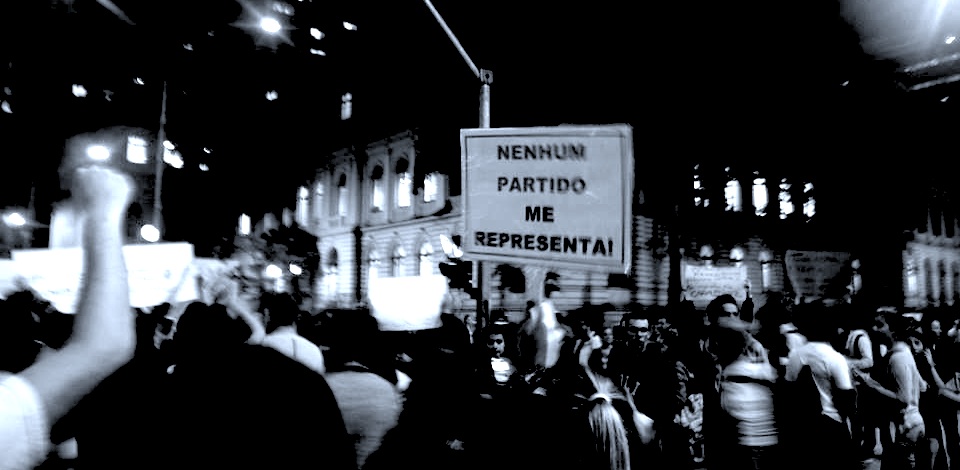“Brazil: Social Change from Import-Substitution to Neoliberalism and the ‘Events of June’” By Alfredo Saad Filho originally published at nuvole.it
Introduction [1]
Large demonstrations erupted unexpectedly in Brazil in June 2013. The wave of protests lasted until mid-July, and it involved well over one million people in several hundred cities. At an immediate level, the demonstrations spread in response to savage police repression against left-wing demands for the reversal of a recent increase in public transport fares in the city of São Paulo (fares had risen from R$3 to R$3.20 earlier that month).[2] Repeated street clashes in São Paulo catalysed a country-wide explosion. The federal government, led since 2003 by the Workers’ Party (Partido dos Trabalhadores, PT), was stunned.
As the demonstrations grew in size, their social composition, political demands and sources of support shifted. The movement departed from a radical left-wing platform, including demands for free public transport and improvements in the provision of public services. These were overwhelmed by the entry of a disparate mass of middle class demonstrators supported by the mainstream media. The movement’s agenda shifted to the right; the marches also became less cohesive. On inspection, each demonstration was found to include a multiplicity of marches which may or may not meet at some point. Vandalism and clashes with the police flared with increasing regularity, and numerous instances of police infiltration came to light.
The left parties, trade unions and social movements realized that something was wrong. They met in São Paulo on 21 June, issued a list of demands, drafted a letter to President Rousseff, and agreed a national day of mobilizations on 11 July around issues of immediate interest to the working class. The federal government called meeting in Brasília to propose a ‘national pact’ and Constitutional reforms, and the left withdrew from the streets. The demonstrations deflated in a matter of days.
This article offers an interpretation of the background and context of the ‘Events of June’, drawing upon a Marxist analysis of the economic and social transformations in Brazil since the ‘double’ transition from import-substituting industrialization (ISI) to neoliberalism, and from the military regime to political democracy, between the mid-1980s and the early 1990s. The article shows that these two transitions have transformed the class structure of Brazilian society, and unleashed tensions that eventually exploded in mid-2013 – and that have been simmering ever since, and may be followed by further explosions with a similar character in the months and years to come. Finally, the article argues that the form of the protests was symptomatic of the social implications of the neoliberal transition; specifically, it has led to the lumpenization of politics and the facebookization of protest in Brazil.
This article includes this introduction and six substantive sections. The first reviews the two development strategies in the postwar Brazilian economy, import-substituting industrialization (ISI) and neoliberalism, and the social structures associated with them. The following four sections examine the most important social classes in the country: the bourgeoisie, the working class, the informal proletariat and the middle class. The sixth section suggests how this class structure has contributed to the emergence of peculiar forms of protest in Brazil. The final section draws the relevant conclusions.

